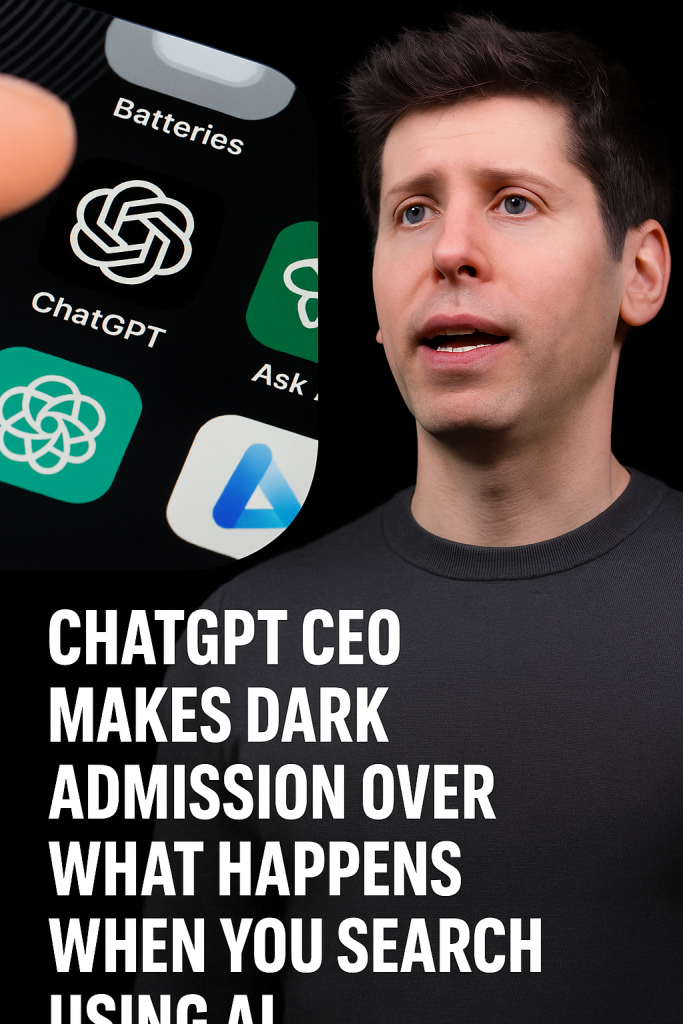The CEO of TCP, a leading player in AI-powered search technologies, has delivered a dark and unsettling admission about the inherent risks users face when interacting with ChatGPT and AI-assisted search tools. This startling revelation is reverberating across social media platforms, stirring vigorous debate about the future of AI search and its societal impact.
During a recent industry event, the TCP CEO candidly addressed the consequences that unfold “when you search using AI tools like ChatGPT,” highlighting concerns that go beyond the usual chatter around AI bias or misinformation. According to the CEO, the risks are more insidious and difficult to detect, with potential long-term effects on information integrity and user trust that are only beginning to surface.
What exactly did the CEO reveal? The controversial statement centered on how AI models, including ChatGPT, curate and prioritize information. Unlike traditional search engines that link directly to source material, these conversational AI tools generate responses synthesized from vast data sets — inevitably introducing subtle distortions and omitting crucial context. The TCP CEO described it as a “black box effect,” where users are unable to verify the origin of answers or detect when data has been skewed or sanitized.
This lack of transparency is causing a huge impact, as indicated by a recent surge in online discussions where users express frustration about seemingly authoritative AI responses that turn out to be incomplete or misleading. The CEO warned that overreliance on ChatGPT-type systems could erode critical thinking skills and deepen dependence on AI-generated outputs without adequate human oversight.
In addition, the statement touched on ethical concerns surrounding data privacy and manipulation, hinting at scenarios where AI responses might be subtly influenced by unseen corporate or political interests. “We must be vigilant that these technologies don’t become tools for shaping narratives without accountability,” the CEO emphasized, underscoring the urgent need for transparent AI governance frameworks.
The ramifications of these comments are far-reaching. With more people turning to AI for everything from simple queries to complex decision-making, the clarity and trustworthiness of AI search results have never been more critical. The CEO’s admission serves as a wake-up call to developers, regulators, and users alike to scrutinize how AI systems are designed and deployed.
Experts outside the company have weighed in, noting that such candid warnings are rare but necessary. They argue that while AI offers transformative potential, the technology’s current evolution still harbors vulnerabilities that could lead to misinformation amplification and unintended societal consequences.
Meanwhile, the social media ecosystem is reacting rapidly. Hashtags related to the TCP CEO’s comments and ChatGPT’s search reliability are trending, as users share personal stories about AI-generated inaccuracies and debates about the balance between innovation and safety. Many are calling for increased transparency in AI model training and clearer disclosure when AI is used in information retrieval.
What’s next? Industry insiders predict the TCP admission will accelerate efforts toward developing standards for AI explainability and perhaps spark regulatory action aimed at safeguarding users. As AI becomes more embedded in daily life, this moment may mark the beginning of a more conscientious approach to managing its risks and benefits.
In the meantime, users are encouraged to approach AI-generated information critically, cross-check facts when possible, and remember that while AI like ChatGPT is a powerful tool, it is not infallible.
The TCP CEO’s candid acknowledgement shines a spotlight on an uncomfortable truth — the future of AI search is fraught with challenges that demand careful navigation to prevent a loss of truth and trust in the digital age.



